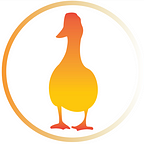Duckter Quack : Lesson 1 —LP
If you’ve spent some time in the crypto space, you may have heard the term LP thrown around a few times. As you dive deeper into the different ecosystems, new, and sometimes confusing, concepts appear. Impermanent Loss?
What’s that all about?
We’ll provide some insight into LPing and how it works on the Zilliqa ecosystem.
What is LP?
In the simplest of terms, a liquidity provider funds a DEX’s liquidity pool with crypto assets they own, to make it easier for traders to get in and out of trades. Liquidity pools use smart contracts on blockchains to provide liquidity.
Liquidity providers usually make profit via:
- Earning fees from transactions on the DeFi platform they provide liquidity on. Transactions fees are distributed proportionally to all the liquidity providers in the pool. So the larger a user’s stake, the more they’ll earn in fees.
- Some liquidity pools (PancakeSwap, ZilSwap etc) offer rewards for certain liquidity pools to incentivise holders to stake their crypto. These rewards are usually paid in the native token used on the platform.
Well, this sounds too good to be true, but this ain’t my first rodeo. Where’s the ‘catch’?
That’s where impermanent loss comes in.
Impermanent Loss (IL)
Impermanent loss happens when the price of your tokens changes compared to when you deposited them in the pool. The larger the change, the greater your exposure is to impermanent loss.
What does this loss look like? The loss means a lower dollar value at the time of withdrawal than at the time of deposit.
Pools that contain assets that remain in a relatively small price range will have less exposure to impermanent loss e.g. stablecoins or wrapped versions of a coin.
So, you’re telling me that I can lose money by providing liquidity? Then what’s the point of providing liquidity? Well, IL can still be counteracted by trading fees and can still result in rather profitable rewards, particularly if you’re receiving reward tokens as a result of LPing.
ZilSwap and $ZSWAP
ZilSwap is the first DEX built on Zilliqa. The non-custodial platform allows for permissionless trading of ZIL and ZRC-2 assets on the Zilliqa blockchain.
As a decentralised platform, $ZWAP is the native governance token that gives control of the protocol over to the community. Holders of $ZSWAP are able to vote on parameters such as protocol fees.
$ZWAP has a total token supply of 1,000,000. The token is distributed according to two stages. Stage 1 (Retroactive Distribution) distributes tokens to early users, testers and builders who have tried and tested the protocol (5% of the total token supply). Stage 2 (Liquidity Mining) distributes tokens as rewards to liquidity providers and developers (95% of total token supply). 6,250 $ZWAP tokens will be released each week starting from 3 February 2021, over a period of 152 weeks.
You can check out some of the proposals at the link below:
How does a user LP?
Now that you have a better understanding of how LPing works, you’re probably wondering how it works. LPing works in token pairs for e.g. BNB–Dodo, ZIL–XSGD. To provide LP, you need to provide equivalent amounts of each of the tokens within the pair.
We’ll walk you through the process of adding liquidity to the XSGD pool on ZilSwap. This process is similar across other tokens and DEXs such as PancakeSwap.
On Zilswap, you earn 0.3% on trades for each pool, proportional to your share of liquidity. Earned fees are added back to the pool and are claimable by removing liquidity.
Well, we hope that was informative. Tune in to the next edition of Duckter Quack, where we’ll be delving into the world of NFTs!
Additional Links
We do not accept any liability for any loss or damage which is incurred from you acting or not acting as a result of reading any of our publications. Our publications do not offer investment advice and nothing in them should be construed as investment advice. Our publications provide information and education for investors who can make their investment decisions without advice. The information contained in our publications is not, and should not be read as, an offer or recommendation to buy or sell or a solicitation of an offer or recommendation to buy or sell any securities.
